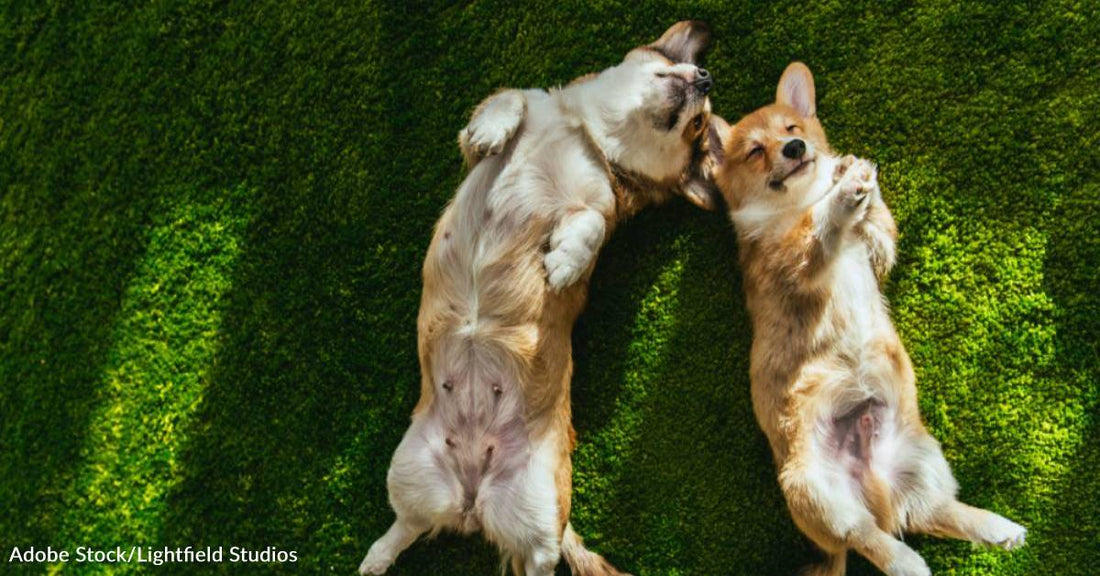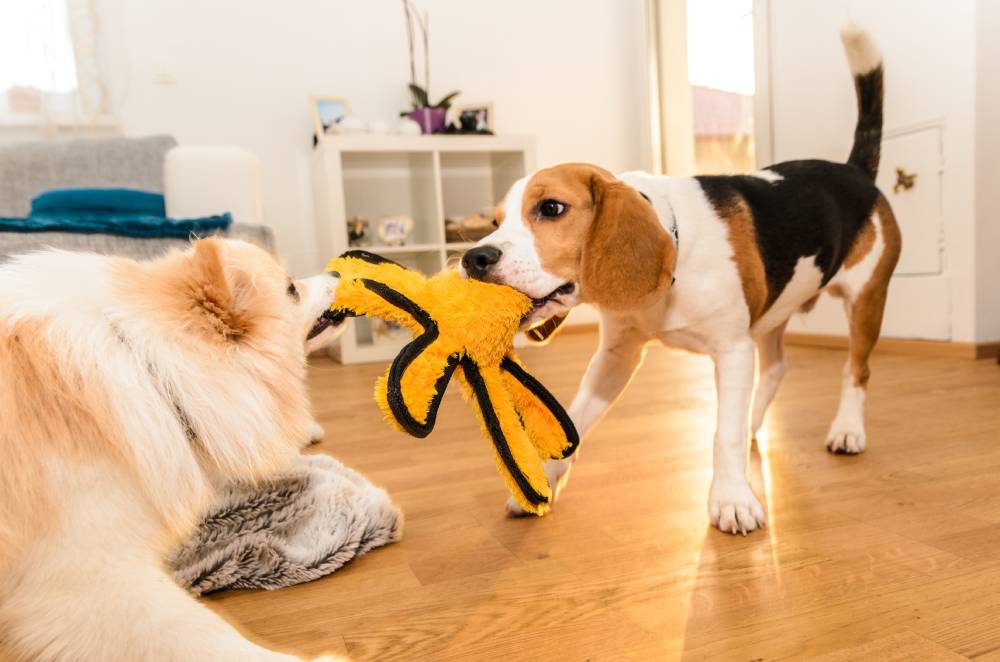When To Get a Second Dog (And When Not To)
Amanda Guagliardo
Dogs bring so much joy into our lives, they become part of your family. That's why two dogs are often better than one! Double the cuteness and double the fun, but also twice the responsibility. How do you know if you should get a second dog?
9 things to consider before getting another dog
There are many things to consider before getting a companion dog. Make sure your family dynamic is correct. Will your family members be on board living in a multi-dog household? Consider your first dog and how they will feel. Also consider the size of your home and the time you have to potentially train another dog. Think about these things before you purchase a second dog.
1. What's your reason for wanting a second dog?
Genuinely think about your reasons for wanting another canine companion. Make sure everyone in your family wants another dog, not just one person in your family. Ultimately you'll all be sharing responsibilities with this new dog. Make sure your reasoning is good for your family and not just for you. You also need to consider your other dog. Will your current dog enjoy having a new friend, or will it cause more problems?
2. Will you be able to walk two dogs at once?
If you're a dog walker and you often take your dogs on walks, you'll want to make sure you can walk both your dogs at once. Make sure your first dog walks ok with another dog, and that this will be something you can handle. You will need to train both dogs to walk with each other. Get the proper leash and harness for your new dog so you can walk them at the same time.
3. How will you travel with two dogs?
If you travel for work, take weekend trips, or go on vacations, think about how having two pets will affect that. If you have to leave your dogs behind, can you afford the care for a sitter or a kennel? Doggy daycare can cost anywhere from $15-$40 a night, times that by two. If you can't afford doggy daycare you'll need to find someone willing to do twice the amount of work and watch both of your dogs. This can be expensive and get complicated.
4. Do you have time to care for another dog?
Having one dog is hard enough but do you have time to take care of another dog? Dogs require a daily schedule, especially a new puppy, and you will now have two dogs to walk, play with and take care of. If you have any major events coming up in your life, you may want to consider holding off on getting another dog. Pet owners should understand that dogs take time and effort and this should be considered when you think about getting another pet.
5. Can you afford to have another dog?
Dogs cost money. And, two dogs can cost a lot more money than you expect. Double the food and double the vet bills. You'll need to purchase another collar, leash, dog bed, crate, etc. Medical expenses come up with dogs, make sure you look at your budget and decide if you can afford any unplanned costs that may come with adding a second dog.
6. Do you have enough room for two dogs?
Someone with a smaller home or apartment should really consider if they have room for a second pet. Depending on the breed, dogs need an area to play and run. If your family and your other dog already take up the majority of your home, then maybe another dog isn't right for you. Consider the activity level of your current dog and what the new dog will bring, do you have the room? Is there a noise ordinance where you live? Make sure you get a breed that won't be too loud for your home.
7. What's your plan for training the new dog?
Whether you get a rescue dog or a puppy, your new pet might need some additional training. Even if you get an older dog, they might need training. Make sure you have the time to train your new pet and that it won't interfere with any other training you may have with your other dog. If you're currently already training a dog, make sure you have the ability to train two pets at once.
8. Will the breeds be compatible?
You will want to consider the breed when you get another dog. Do your research and ask your veterinarian if the breed of your first dog will be compatible with your second dog. There are many dog breeds that are compatible with one another. Some breeds that generally get along with one another are Basset Hounds, Goldendoodles, Cocker Spaniels, and Great Danes. If you have a calmer dog or a small dog, make sure they will be compatible with the other dog.
9. Will the genders be compatible?
There isn't a set rule on which genders will match if you get another dog, but it's generally easier to get dogs of a different sex. Same-sex combinations can be harder to manage. There may be disagreements with your same-sex dogs because they'll be trying to work out the order of the pack when the new dog arrives.
When you should not get a second dog
You may be asking yourself, "When should I get another dog?" Just like having a second child, there is never a right time, but there may be a time in your life that's easier to make the transition from one dog to two.
The ages are too far apart
Consider your current dog's age. Before getting a second dog you'll want to make sure the pups' ages aren't too far apart. If you already have a senior dog, getting a young puppy may not be a good match. Older dogs often like to sleep and relax, where young dogs are full of energy and want to play. Your older dog may feel your new dog is too overwhelming and this could cause more stress than good.
They have different energy levels
Try to pick a dog that has the same type of energy level as your current dog. Check out their breeds, research personalities, and take your current dog into consideration when picking a new pup. A larger dog with lots of energy may not be good around a tiny dog who can't keep up. If you're worried about their energy levels matching, it may be a good idea to foster a dog first before you keep one.
Your current dog is aggressive around other dogs
Your dog's behavior is an important factor. If the dog you have now has aggression towards other dogs, you should definitely steer clear of getting another dog. If you notice your dog gets agitated at the dog park or doesn't interact well with other pups then it's likely bringing another dog into your home won't work out.
When you should get another dog
Getting a second dog could be a plus if your current dog has separation anxiety. Getting another dog may actually help them. The second dog may keep your current dog company while you're away. The new dog could give your dog some emotional support and attention while you're gone. They'll have a new playmate to focus on.
After you've considered all the pros and cons of getting a second dog and you've decided it is right for you, you may be trying to decide if you should adopt or buy a dog. This is another thing you'll need to ponder, but you should definitely check out rescue shelters or adoption agencies. Rescuing a dog can be very rewarding.
















